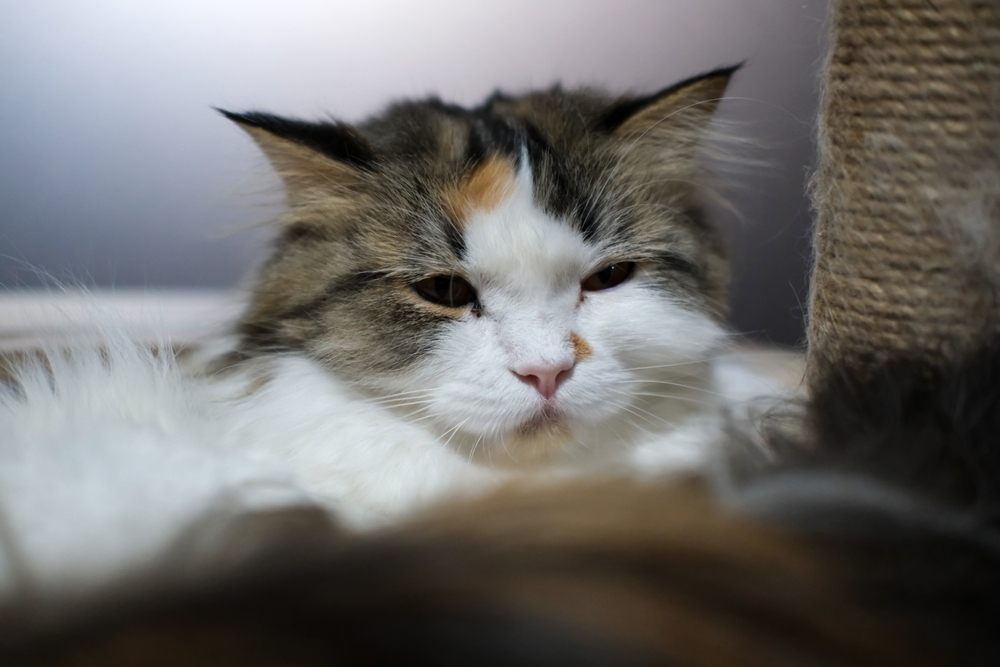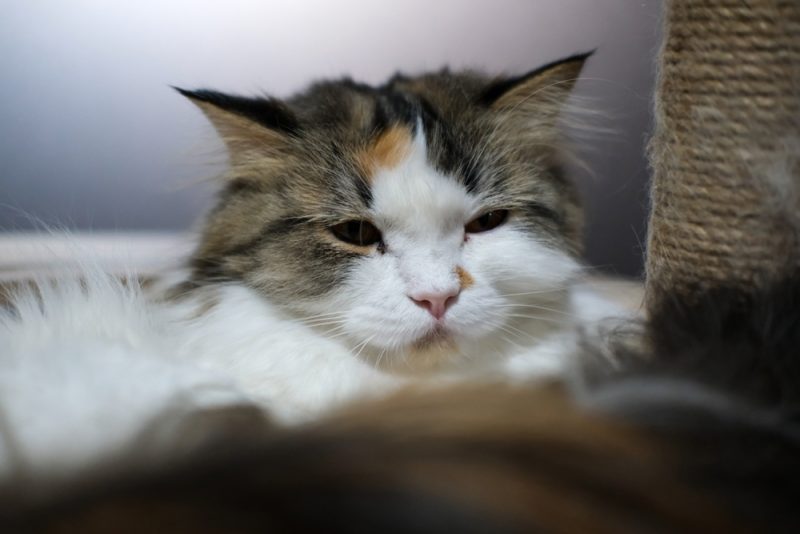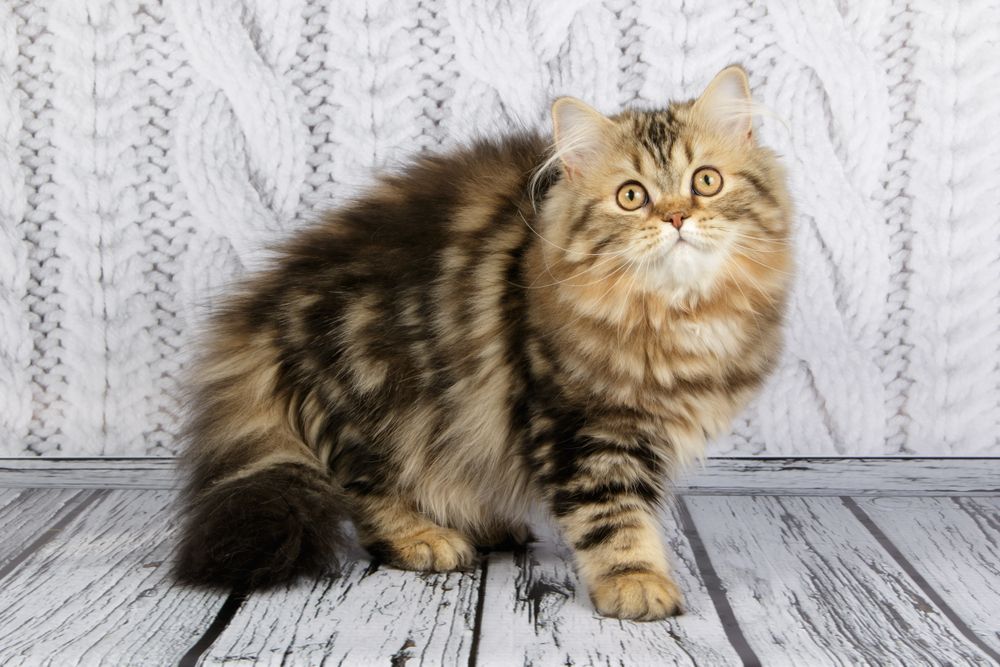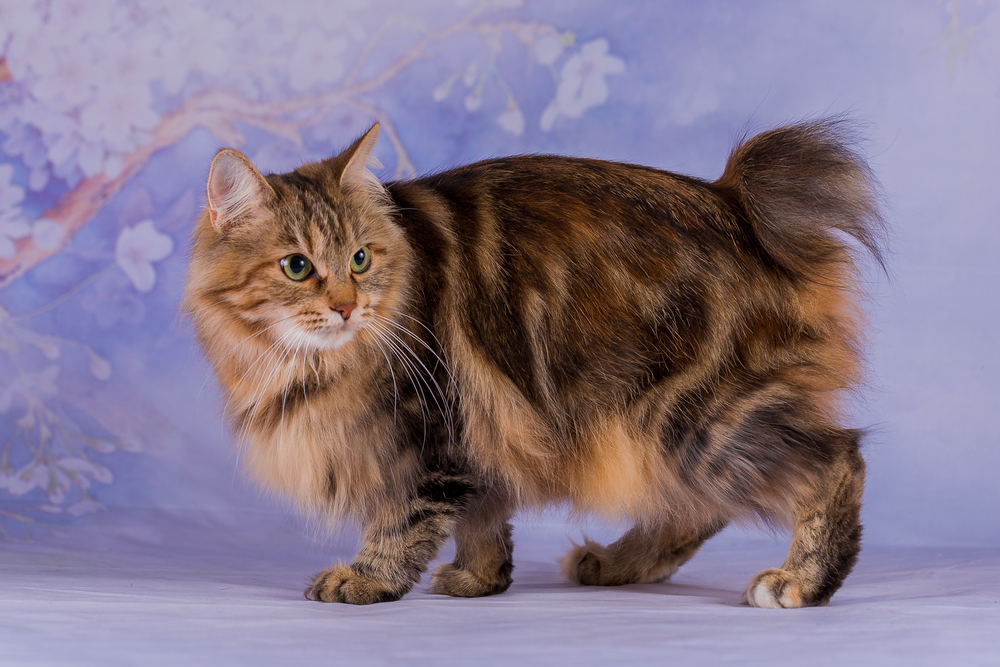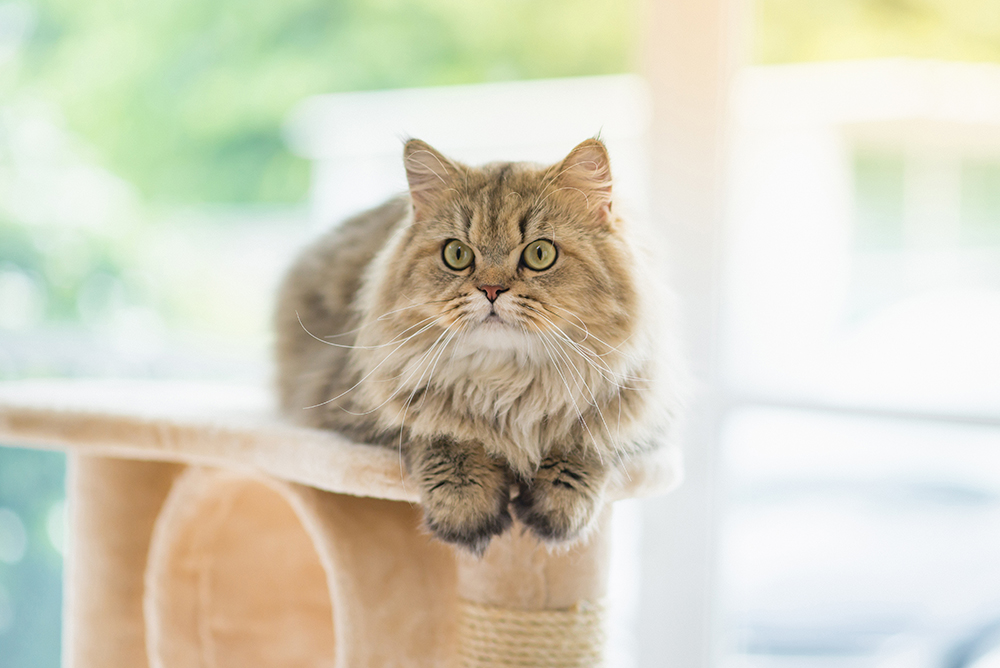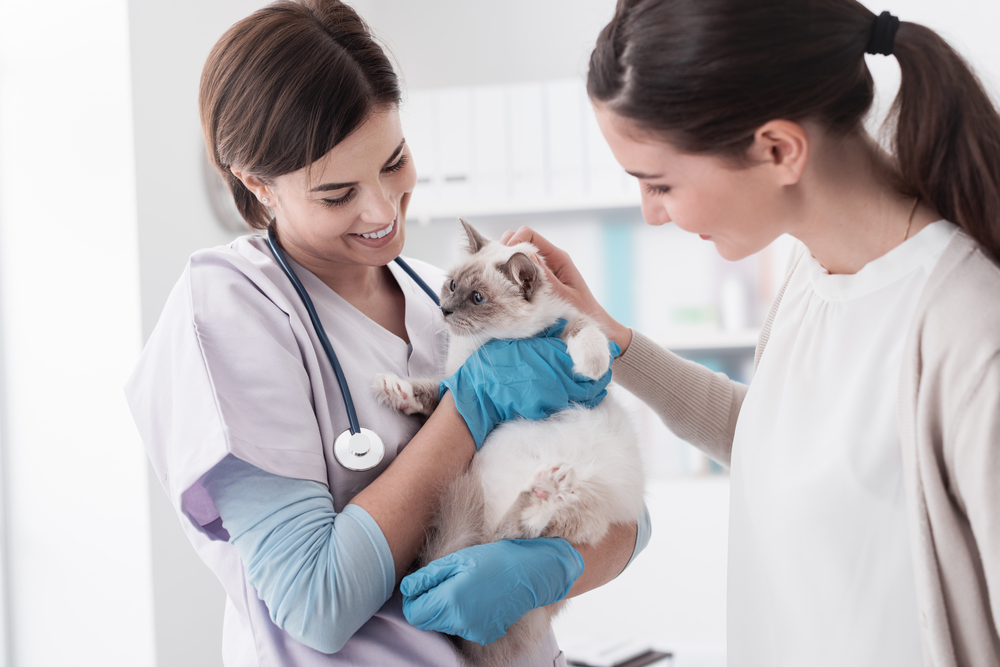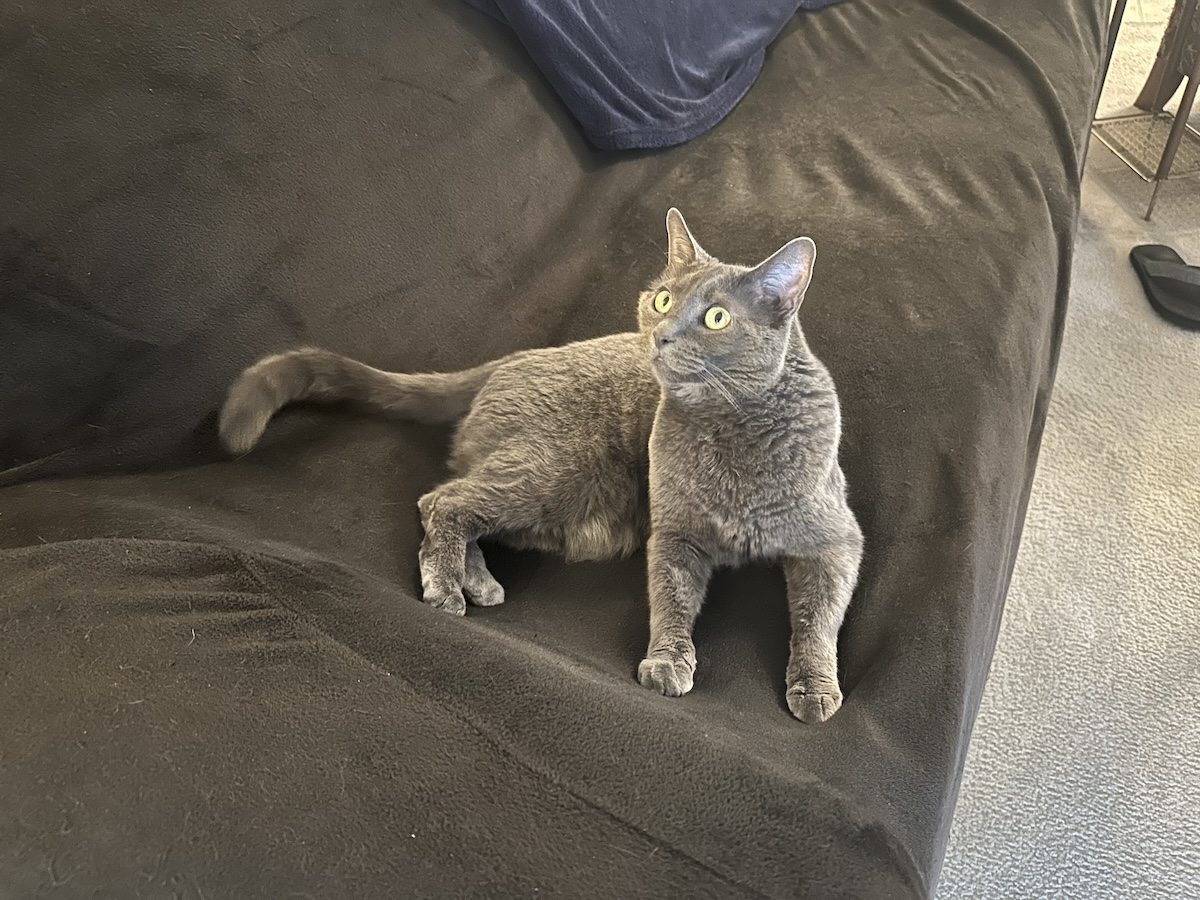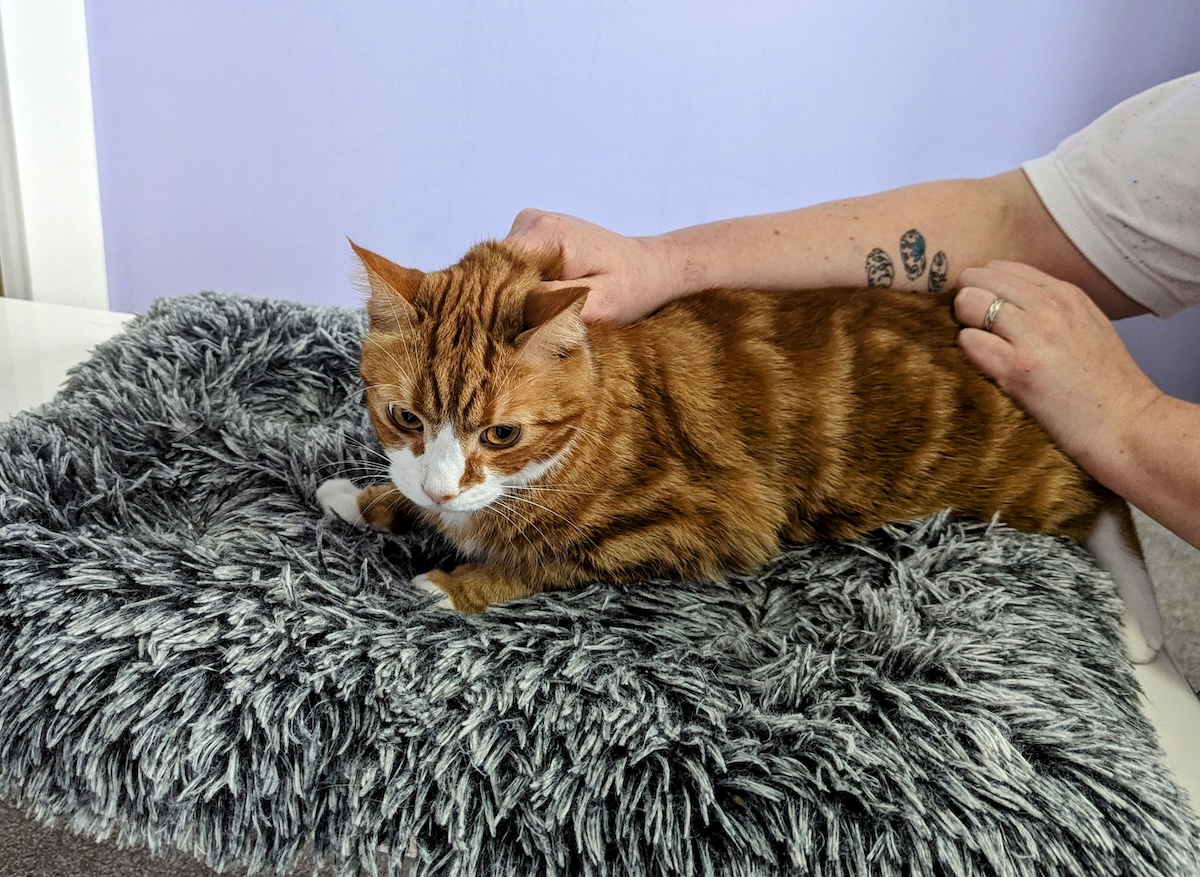Click Below to Skip Ahead
As a combination of two unique breeds hailing from opposite sides of the Atlantic Ocean, the Scottish Fold-Maine Coon mix is one intriguing cat. With so many physical differences between the two parent breeds, you never know what one of these cats will look like including if their ears will be folded.
Breed Overview
Height:
8–16 inches
Weight:
8–20 pounds
Lifespan:
9–13 years
Colors:
White, blue, silver, cream, red, black, and calico, patterns including tortoiseshell, smoke, shaded, tabby, ticked
Suitable for:
Individuals and families who can spend plenty of time with their cat, families with kids and other pets, smaller space living
Temperament:
Playful, affectionate, gentle, intelligent, charming
Fortunately, Scottish Folds and Maine Coons are known for their sweet and friendly personalities, and their mixed offspring are no different. Unfortunately, both parent breeds can suffer from severe health problems and to ensure your cat’s welfare we recommend discussing this mix with a veterinarian before getting one. In this article, you’ll learn details about the Scottish Fold-Maine Coon Mix, including what it’s like to keep one as a pet and health problems to be aware of.
Scottish Fold-Maine Coon Mix Characteristics

Scottish Fold-Maine Coon Mix Kittens
While Maine Coons are generally pretty healthy cats, they are prone to hypertrophic cardiomyopathy, which is a genetic heart condition. Scottish Folds are prone to the genetic condition osteochondrodysplasia, a condition that creates the folded ears that give them that signature look but affects the development of cartilage and bones.
If you do decide to get one of these mixed breed kittens, it is essential you know the breeder. A reputable breeder should be able to provide the health records of the parents, helping show a clean genetic record. Getting a kitten without any history could mean they have those genetic conditions. This means plenty of complications for them and you.
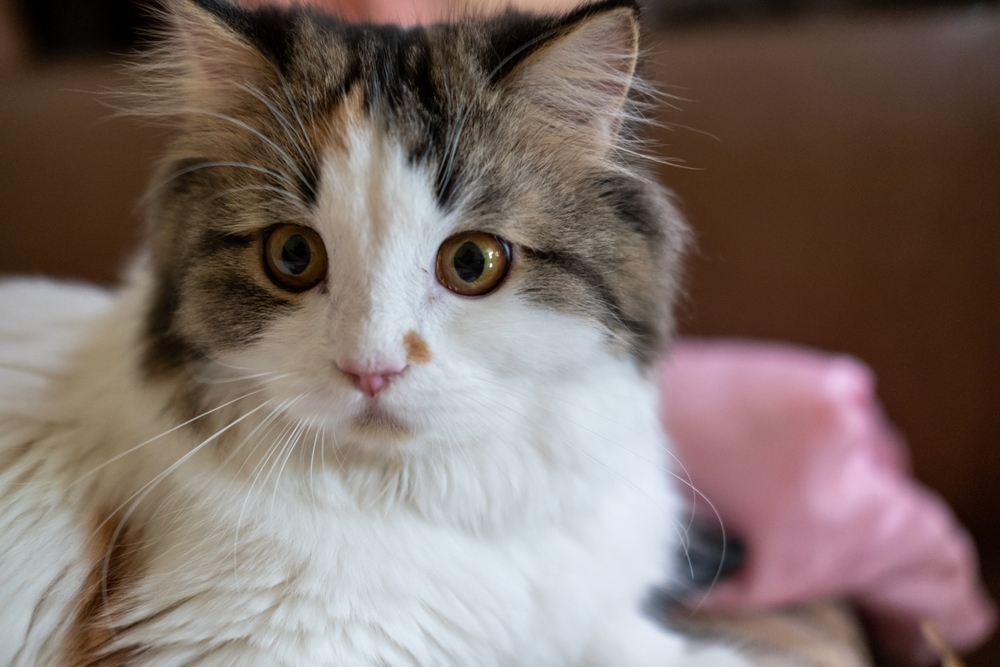

Temperament & Intelligence of the Scottish Fold-Maine Coon Mix
Maine Coon cats are known for being one of the more intelligent cat breeds, often called “dog-like” due to their trainability and willing nature. They can be pretty outgoing and affectionate to all, making them popular as therapy cats. Scottish Folds are quiet but also friendly and adaptable.
A Scottish Fold-Maine Coon mix may display personality traits closer to one or the other parent breed or be more of an even combination.
Are These Cats Good for Families? 👪
Scottish Fold-Maine Coon mix cats make lovely family pets. Both parent breeds are known for their friendly, sociable, and flexible personalities. Maine Coons are especially good with kids due to their sturdy size and calm temperaments.
Scottish Folds are usually not as openly outgoing as Maine Coons but are more tolerant of noisy, busy households than some more reserved breeds. However, Scottish Fold-Maine Coon mixes are not a good fit for the type of household where the family isn’t home much. They bond closely with their humans and don’t tolerate being left alone very well.
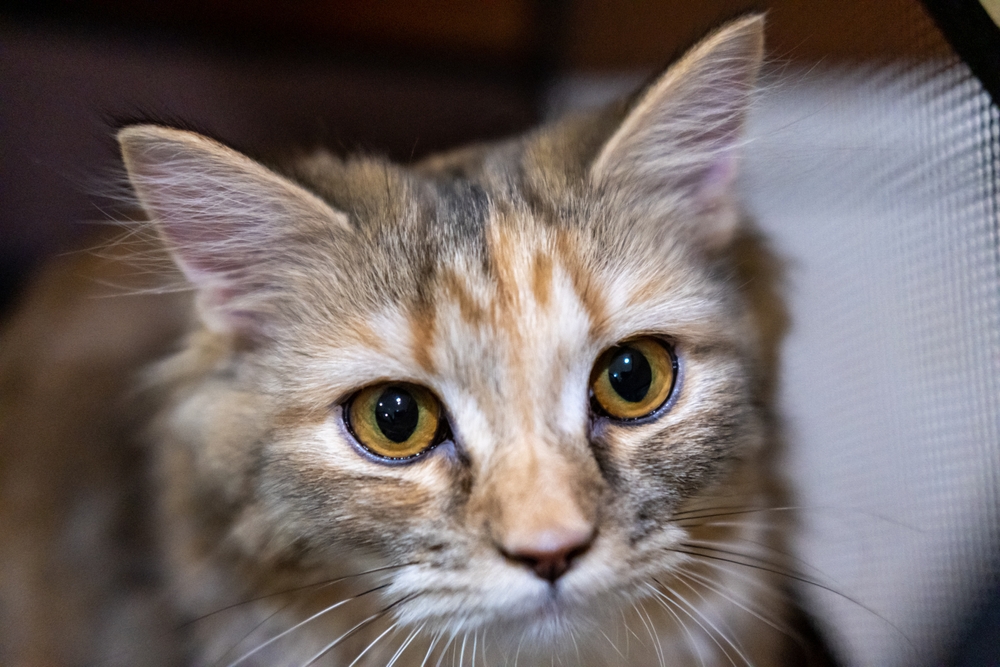
Does This Breed Get Along with Other Pets?
Both parent breeds are known for getting along with other pets, and you can expect a Scottish Fold-Maine Coon mix to do the same. They may enjoy living with dogs and other cats, but you should always supervise and socialize the pets with each other to ensure a smooth start to the relationship.
Like any cat, Scottish Fold-Maine Coon mixes are natural predators. While they may not actively try to hunt birds or other small exotic pets, their presence may be stressful to these smaller animals. Play it safe and keep birds, rodents, and exotics separated from the cat.

Things to Know When Owning a Scottish Fold-Maine Coon Mix:
Scottish Fold-Maine Coon cats are typically relatively low-maintenance pets, except for their grooming needs, depending on their coat type. Here are some details potential owners should know before buying a Scottish Fold-Maine Coon mix.
Food & Diet Requirements 🐡
Scottish Fold-Maine Coon mixes generally don’t have any special diet requirements as long as they’re otherwise healthy. You should serve nutritionally balanced food appropriate to the cat’s life stage. Commercial foods are required to meet all proper nutritional standards and are the easiest way to help your cat eat right.
If you prefer to feed a homemade diet, ask your vet to help you formulate the meals to ensure all essential nutrients and amino acids are present.
Because of their Maine Coon parent, these cats are often quite physically large. Scottish Folds also tend to be a bit round by nature. Scottish Fold-Maine Coon mixes can put on too much weight, which can be unhealthy and cause stress on their skeletal system.
More important than what food you feed your cat is how much. Your vet can help you calculate how many calories your Scottish Fold-Maine Coon mix should eat daily based on age, weight, and activity level. Stick to this diet even if your kitty insists they’re starving, which is likely to happen!

If you need to speak with a vet but can’t get to one, head over to PangoVet. It’s an online service where you can talk to a vet online and get the personalized advice you need for your pet — all at an affordable price!
Exercise 🐈
One way to keep your pet at a healthy weight is to make sure they get daily exercise. Maine Coons usually need more exercise than Scottish Folds, so your mix cat’s activity needs vary.
Scottish Folds are prone to bone and joint issues and weakness due to their genetic differences. Because of this, you’ll need to be more careful with some Scottish Fold-Maine Coon mixes during playtime and physical activity.
More active Scottish Fold-Maine Coon mixes will enjoy climbing cat trees and engaging in active play. Quieter individuals may prefer to play with puzzle games or teaser wands. Playing with your cat every day will keep them physically and mentally fit and help strengthen your bond with your pet.
Training 🧶
As mentioned earlier, Maine Coon cats are typically considered one of the more trainable cat breeds. Your Scottish Fold-Maine Coon mix may also take well to training, although cats require more patience and persistence than dogs when it comes to learning.
Since this breed generally loves to eat, you’ll likely have the most luck using positive, food-reward training techniques. Consistency is key to successful training, and you should never resort to punishing your cat for bad behavior.
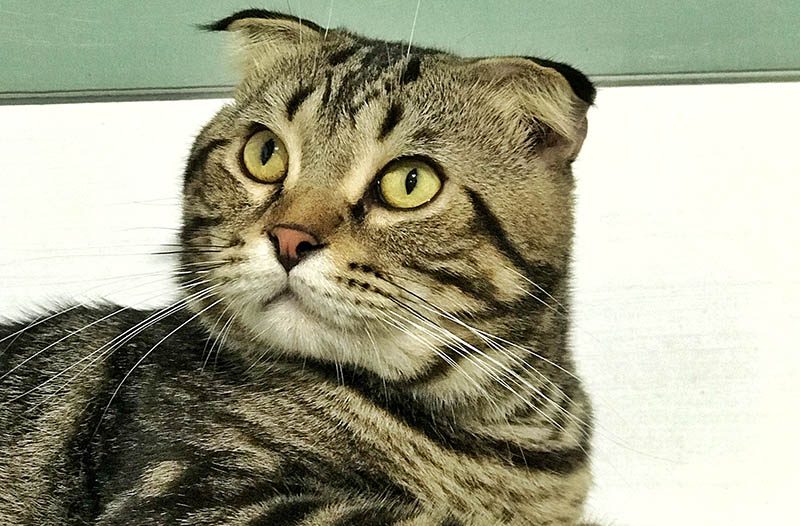
Grooming ✂️
Maine Coons are famous for their thick, luxurious coats, developed to survive the cold winters of their home state. Scottish Folds usually have short coats, but the breed has a longer-haired variation. Your Scottish Fold-Maine Coon mixes’ grooming needs will depend very much on which breed’s coat they inherit.
A coat more like a Maine Coon will likely require frequent brushing to remove tangles and mats. Many Maine Coon owners also choose to get their cats professionally groomed, including sanitary cuts, to keep their coats looking tidy. Shorter-haired Scottish Fold-Maine Coon mixes may only need occasional brushing to keep shedding to a minimum.
If your cat does indeed have folded ears, clean them frequently to help prevent infections. Keep your cat’s nails trimmed and perform regular dental care by brushing or using other oral health products recommended by your veterinarian.
Health and Conditions 🏥
Scottish Fold-Maine Coon mixes1 can suffer from inherited diseases common to either parent. The characteristic folded ears of the Scottish Fold breed are caused by a genetic mutation in the TRPV4 gene2, which controls cartilage development. The defective gene causes severe cartilage and bony problems known as osteochondrodysplasia. Some of these disorders can be detected by tests before a cat is used for breeding. If you’re buying a kitten from a breeder, ask about the parent cats’ medical history and any screening tests that were performed.
Serious Conditions:
Maine Coons can suffer from bone and joint conditions, including hip dysplasia and spinal muscular atrophy. They’re also one of the breeds commonly afflicted by a heart condition called hypertrophic cardiomyopathy.
Scottish Folds with curled ears suffer from osteochondrodysplasia and painful degenerative joint disease. They are also prone to a condition called polycystic kidney disease. The health impact on kittens born with folded ears is so great that it has led to the breed being banned in some states and countries.
There is ethical debate as to if these cats should be used for breeding at all. Half of all kittens born of a Scottish Fold parent will carry the genetic defect and therefore will develop lifelong cartilage and bony problems.
Minor Conditions:
Scottish Folds with folded ears are anecdotally more prone to ear infections than other cat breeds, but the Maine Coon and Scottish Fold are both vulnerable to obesity, thanks to their love of food.
- Ear infections
- Obesity
- Hip dysplasia
- Spinal muscular atrophy
- Hypertrophic cardiomyopathy
- Degenerative joint disease
- Polycystic kidney disease

Male vs Female
The primary difference between male and female Scottish Fold-Maine Coon cats is their size. Male Maine Coon cats are significantly larger than females, and while Male Scottish Folds also tend to be larger than females, the weight difference is minimal.
Unneutered male cats frequently mark and spray with strong-smelling urine, while unspayed females go into heat regularly. Females may experience personality changes during heat and be very vocal and demanding.
Neutering or spaying your Scottish Fold-Maine Coon cat usually has a calming and mellowing effect on its personality. Many people prefer male or female cats, which may also be the deciding factor for you.

3 Little-Known Facts About the Scottish Fold-Maine Coon Mix
1. All Scottish Folds Are Descended From One Cat.
All Scottish Fold cats, including Scottish Fold-Maine Coon mixes, are descended from a single female kitten born in a Scottish farm barn in 1961. This cat, named Susie, was the lone folded-ear kitten born into a litter of cats with regular upright ears. Susie was crossed with British Shorthairs and others to establish the Scottish Fold breed.
2. Scottish Fold-Maine Coon Cats May Come in Almost Any Color.
Scottish Folds and Maine Coons come in dozens of permitted coat colors and patterns. A mix of these breeds could be one of several solid colors, such as blue, red, black, silver, or cream. They could have tabby markings or be a mixture of one or more colors.
3. Scottish Fold-Maine Coon Cats Often Like Water.
Most cats notoriously despise water, but Maine Coons are an exception. Many Maine Coon owners notice that their pets enjoy batting at and playing in the water or trying to follow them into the shower. There’s a good chance your Scottish Fold-Maine Coon mix will inherit these tendencies too.

Final Thoughts
The Scottish Fold-Maine Coon mix is usually well-suited to most living situations and families. Just remember that they don’t like being left alone often, so you may want to consider a different breed if that’s the situation at your house. We don’t recommend you look for a Scottish Fold-Maine Coon mix with folded ears because they are affected by the TRPV4 gene mutation which affects healthy cartilage and bone development throughout the body.
Related Reads:
- Maine Coon vs American Shorthair Cat: What’s the Difference? (With Pictures)
- European Maine Coon vs. American Maine Coon: What’s the Difference?
- Persian Scottish Fold Cat Mix: Pictures, Temperament & Traits
Featured Image Credit: Moomusician, Shutterstock

